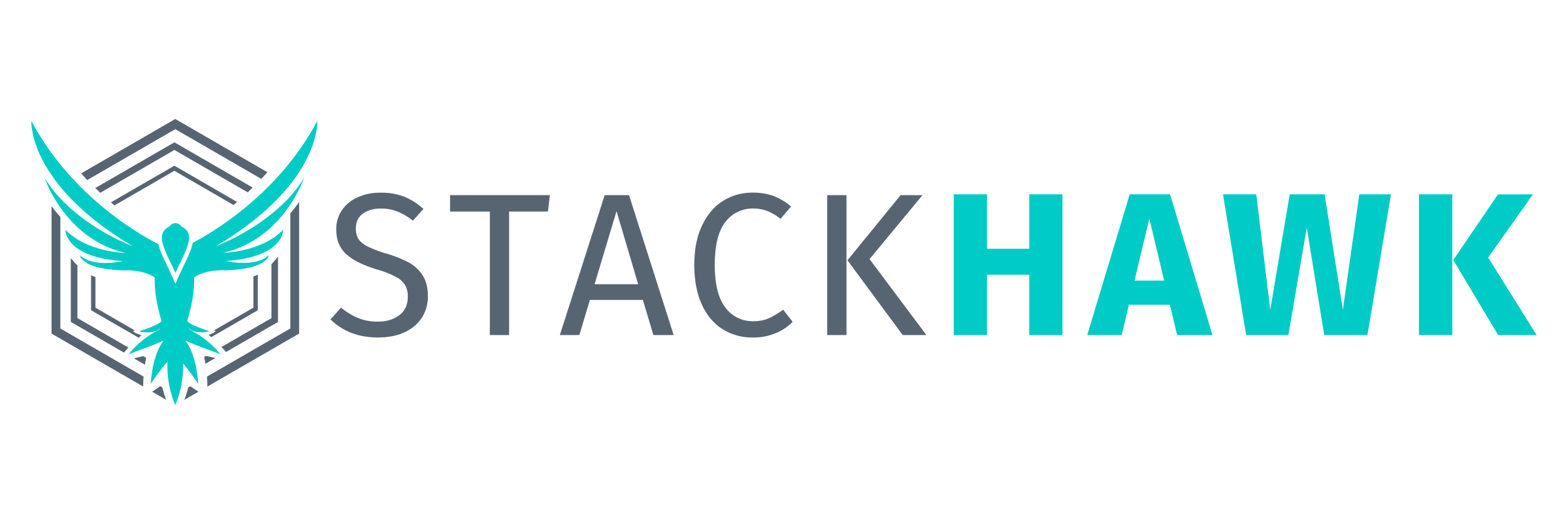The StackHawk HawkScan GitHub Action makes it easy to integrate application security testing into your CI pipeline.
Here's the rundown:
- 🧪 Modern Application Security Testing: StackHawk is a dynamic application security testing (DAST) tool, helping you catch security bugs before they hit production.
- 💻 Built for Developers: The engineers building software are the best equipped to fix bugs, including security bugs. StackHawk does security, but is built for engineers like you.
- 🤖 Simple to Automate in CI: Application security tests belong in CI, running tests on every PR. Adding StackHawk tests to a DevOps pipeline is easy.
- Get your application set up in StackHawk with our quickstart guide
- Add your HawkScan Action to your GitHub repository. Continuous Integration with HawkScan GitHub Action
Required Your StackHawk API key.
For example:
jobs:
stackhawk-hawkscan:
runs-on: ubuntu-latest
steps:
- uses: actions/checkout@v2
- uses: stackhawk/hawkscan-action@v2.2.0
with:
apiKey: ${{ secrets.HAWK_API_KEY }}Optional If you wish to supply additional arguments as a multi line input use the args option.
For example:
jobs:
stackhawk-hawkscan:
runs-on: ubuntu-latest
steps:
- uses: actions/checkout@v2
- uses: stackhawk/hawkscan-action@v2.2.0
with:
args: |
--hawk-mem 1gOptional If you want to run a command other than scan, it can be supplied in the command option.
For example:
jobs:
stackhawk-hawkscan:
runs-on: ubuntu-latest
steps:
- uses: actions/checkout@v2
- uses: stackhawk/hawkscan-action@v2.2.0
with:
command: rescanOptional If set to true, shows HawkScan commands, but don't run them.
For example:
jobs:
stackhawk-hawkscan:
runs-on: ubuntu-latest
steps:
- uses: actions/checkout@v2
- uses: stackhawk/hawkscan-action@v2.2.0
with:
apiKey: ${{ secrets.HAWK_API_KEY }}
dryRun: trueOptional A list of HawkScan configuration files to use. Defaults to stackhawk.yml. File names can be separated with spaces, commas, or newlines.
For example:
jobs:
stackhawk-hawkscan:
runs-on: ubuntu-latest
steps:
- uses: actions/checkout@v2
- uses: stackhawk/hawkscan-action@v2.2.0
with:
apiKey: ${{ secrets.HAWK_API_KEY }}
configurationFiles: stackhawk.yml stackhawk-extra.ymlOptional Flag to signal to only install the CLI and not run a scan if set to true. Then you can optionally run hawk CLI from the job
For example:
jobs:
stackhawk-hawkscan:
runs-on: ubuntu-latest
steps:
- uses: actions/checkout@v2
- uses: stackhawk/hawkscan-action@v2.2.0
with:
installCLIOnly: true
- name: Run CLI Scan
run: hawk --api-key=${{ secrets.HAWK_API_KEY }} scanOptional (requires githubToken) If set to true, uploads SARIF scan data to GitHub so that scan results are available from Code Scanning.
The codeScanningAlerts feature works in conjunction with the HawkScan's hawk.failureThreshold configuration option. If your scan produces alerts that meet or exceed your hawk.failureThreshold alert level, it will fail the scan with exit code 42, and trigger a Code Scanning alert in GitHub with a link to your scan results.
For example:
jobs:
stackhawk-hawkscan:
runs-on: ubuntu-latest
steps:
- uses: actions/checkout@v2
- uses: stackhawk/hawkscan-action@v2.2.0
with:
apiKey: ${{ secrets.HAWK_API_KEY }}
codeScanningAlerts: true
githubToken: ${{ github.token }}NOTE: GitHub Code Scanning features are free for public repositories. For private repositories, a GitHub Advanced Security license is required.
Optional If set to ${{ github.token }}, gives HawkScan Action a temporary GitHub API token to enable uploading SARIF data. This input is required if codeScanningAlerts is set to true.
Optional If you need additional information on your scans enable the debug and verbose environment variables to see detailed logs in the workflow output
jobs:
stackhawk-hawkscan:
runs-on: ubuntu-latest
steps:
- uses: actions/checkout@v2
- uses: stackhawk/hawkscan-action@v2.2.0
with:
apiKey: ${{ secrets.HAWK_API_KEY }}
verbose: true
debug: trueOptional If you need to configure your scan to run in folder outside your .github folder you can set a workspace path relative to your directory
jobs:
stackhawk-hawkscan:
runs-on: ubuntu-latest
steps:
- uses: actions/checkout@v2
- uses: stackhawk/hawkscan-action@v2.2.0
with:
workspace: ./app/config/Optional If you need to configure your scan to run with a specific version of HawkScan you can set the version
jobs:
stackhawk-hawkscan:
runs-on: ubuntu-latest
steps:
- uses: actions/checkout@v2
- uses: stackhawk/hawkscan-action@v2.2.0
with:
version: 2.7.0The following example shows how to run HawkScan with a StackHawk platform API key stored as a GitHub Actions secret environment variable, HAWK_API_KEY. In this workflow, GitHub Actions will checkout your repository, build your Python app, and run it. It then uses the HawkScan Action to run HawkScan with the given API key. HawkScan automatically finds the stackhawk.yml configuration file at the root of your repository and runs a scan based on that configuration.
jobs:
stackhawk-hawkscan:
runs-on: ubuntu-latest
name: Run my app and scan it
steps:
- name: Check out repo
uses: actions/checkout@v2
- name: Build and run my app
run: |
pip3 install -r requirements.txt
nohup python3 app.py &
- name: Scan my app
uses: stackhawk/hawkscan-action@v2.2.0
with:
apiKey: ${{ secrets.HAWK_API_KEY }}The next example shows a similar job with more options enabled, described below.
jobs:
stackhawk-hawkscan:
runs-on: ubuntu-latest
name: Run my app and scan it
steps:
- name: Check out repo
uses: actions/checkout@v2
- name: Build and run my app
run: |
pip3 install -r requirements.txt
nohup python3 app.py &
- name: Scan my app
env:
APP_HOST: 'http://localhost:5000'
APP_ID: AE624DB7-11FC-4561-B8F2-2C8ECF77C2C7
APP_ENV: Development
uses: stackhawk/hawkscan-action@v2.2.0
with:
apiKey: ${{ secrets.HAWK_API_KEY }}
dryRun: true
configurationFiles: |
stackhawk.yml
stackhawk-extras.ymlThe configuration above will perform a dry run, meaning it will only print out the Docker command that it would run if dryRun were set to false, which is the default. Finally, it tells HawkScan to use the stackhawk.yml configuration file and overlay the stackhawk-extra.yml configuration file on top of it.
HawkScan 4 and above requires Java 17 through 21. If you are defaulting to latest version of HawkScan, please ensure your Java is set to the correct version on your Github runners.
To address this, Java on Hosted Runners can be easily setup in a prior workflow step to instead use the correct Java version:
- uses: actions/setup-java@v4
with:
distribution: 'temurin'
java-version: '17'If you have questions or need some help, please email us at support@stackhawk.com.
